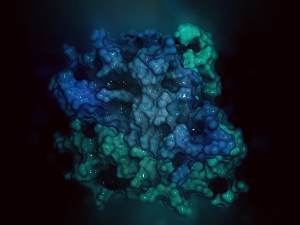The effect of tumor necrosis factor (TNF)-α inhibitors on body weight has been researched mostly among patients with rheumatologic diseases.
Rachel W. Winter, MD, MPH, a gastroenterologist in the Crohn’s and Colitis Center at Brigham and Women’s Hospital, and colleagues in Denmark recently conducted the largest study ever to evaluate weight change during TNF inhibitor therapy for patients with inflammatory bowel disease (IBD). In The American Journal of Gastroenterology, they report overall low weight gain with infliximab and conclude it was unlikely to be an effect of the medication.
Methods
The observational study was conducted in Denmark, where all citizens have access to a tax-supported healthcare system. The initial data sources were national registries that contain information on all hospitalizations and medications. In Denmark, TNF inhibitors must be administered in public hospitals or hospital-based outpatient clinics.
The researchers supplemented the registry with a registry of information on 2,843 biologic-naïve patients with IBD who initiated anti-TNF therapy between March 1, 2016, and February 28, 2019. Reporting to both registries is mandatory for all hospitals and clinics. By linking to other national registries, the team was able to control for disease activity, steroid use and many other potential confounders.
The final cohort was 851 adults (489 with Crohn’s disease [CD], 362 with ulcerative colitis [UC]) who received at least three infusions of infliximab and had their weight and height recorded at treatment initiation and during at least two other treatment visits. They were followed during induction therapy (days 0–90) and maintenance therapy (days 91–270).
Patients were grouped by World Health Organization BMI categories: underweight, BMI <18.5 kg/m2; normal weight, 18.5–24.9 kg/m2; overweight, 25–30 kg/m2; obese, >30 kg/m2.
Women
Adjusted weight gain in women was calculated according to disease type and initial BMI category:
- Across all initial weight categories—the average gain was <2 kg during the study
- CD, initially underweight—the average gain was 2 kg (95% CI, 1.4–2.7) during induction and 7.5 kg (95% CI, −0.3 to 15.4) during maintenance
- CD, initial BMI ≥18.5 kg/m2—no significant gain during the study
- UC—no significant gain during the study regardless of BMI at the start of treatment
Men
Adjusted weight change in men was:
- CD, initially underweight—the average gain was 2.9 kg (95% CI, 2.1–3.6) during induction and 1.9 kg (95% CI, −0.5 to 4.3) during maintenance
- CD, initially overweight—the average gain was 1.7 kg (95% CI, 0.5–3.0) during the study
- CD, initially normal weight or obese—no significant gain during the study
- UC, initially underweight—the average gain was 2.9 kg (95% CI, 1.9–3.9) during induction; the average loss was 2.3 kg (95% CI, −3.8 to −0.7) during maintenance
- UC, initial BMI ≥18.5 kg/m2—no significant weight gain during the study
Commentary
In summary, weight gain nine months after starting infliximab was <2 kg for all IBD patients except for women with CD who had an initial BMI <18.5 kg/m2. The gain was presumably multifactorial, as patients started infliximab when they were underweight and probably gained weight because of decreased inflammation, improved caloric intake, greater nutrient absorption and better overall well-being.
Of course, an increase in weight that isn’t statistically significant can be clinically significant for some individuals.
